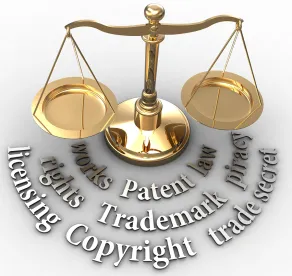On June 22, 2018, the United States Supreme Court held that a patent owner can collect lost foreign profits for use of an infringing product outside the U.S.
The case involved WesternGeco LLC’s suit against ION Geophysical Corporation for patent infringement. The patents relate to a system for surveying the ocean floor for oil and gas by ships towing streamers with sensors that can be miles long. The patents cover wings on the streamers to keep them from tangling and the sensors create dimensional maps.
WesternGeco does not sell or license its technology to competitors. Instead, it uses the technology itself, performing surveys for oil and gas companies. For several years, WesternGeco was the only surveyor that used this technology.
In 2007, ION Geophysical Corporation began selling a competing system. It manufactured the components in the U.S. and shipped them to companies abroad.
WesternGeco sued ION in 2009 for patent infringement. The jury found ION liable and awarded WesternGeco damages of $12.5 million in royalties and $93.4 million in lost profits.
- The $12.5 million in royalties was for making the components in the U.S. and shipping them abroad.
- The $93.4 million was for lost survey contracts that WesternGeco would have performed.
On appeal, the Federal Circuit found ION liable for infringement, but reversed the award of lost-profits damages. The Federal Circuit stated that Congress never intended to extend U.S. patent law to cover uses abroad of articles created from exported components. The customers of ION were the only ones to make foreign sales and use of the unpatented seismic surveys.
The Supreme Court Reverses the Federal Circuit
Courts presume that federal statutes apply only within the U.S. This principle is commonly called the presumption against extraterritoriality. As the Court stated, “The presumption rests on ‘the commonsense notion that Congress generally legislates with domestic concerns in mind.’ And it prevents ‘unintended clashes between our laws and those of other nations which could result in international discord’.”
The Supreme Court has established a two-step process for deciding questions or extraterritoriality:
1. The first step asks whether the text of the law provides a “clear indication of an extraterritorial application.”
2. The second step asks “whether the case involves a domestic application of the statute.”
Courts make the second step determination by:
1. Identifying the statute’s focus, and
2. Asking whether the conduct relevant to that focus occurred in U.S. territory. If it did, then the case involves a permissible domestic application of the statute.
The Supreme Court only applied the second step. The Court stated that statutory provisions that work together must be assessed together to determine the focus.
- Statutory section 35 USC §271(f)(2) was the basis for WesternGeco’s infringement claim and the lost-profits damages that it received. This statute addresses infringement of a patent for the act of exporting components made in the U.S. that are specifically adapted for an invention.
- The patent damages statute, 35 USC §284, works in tandem with §271(f)(2). The Court found that the overriding purpose of the patent damages statute is to afford patent owners complete compensation for infringements.
The Supreme Court held that the focus of this statute was the infringement and that it happened in the U.S. Therefore, WesternGeco was entitled to the profits it lost when the customers of ION took that business. The lost profits were the only way that WesternGeco could be compensated for the infringement that occurred in the U.S.
The business takeaway is that a patent owner is entitled to recover the difference between its monetary condition after the infringement, and what its condition would have been if the infringement had not occurred. This recovery can include lost foreign profits.




 />i
/>i

